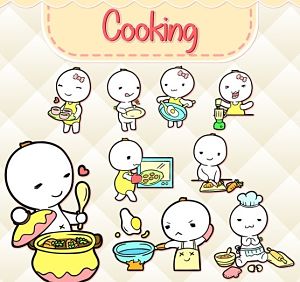Here’s a list of the fastest growing jobs from the Bureau of Labor Statistics. It shows their current average salary in USD plus their expected growth percentage by 2030.
If you want to know the core job duties of these jobs, visit http://online.onetcenter.org/Type the job title into the search box in the right-hand corner of the page, and select the Tasks associated with that job.
How do you know if you’re suited for doing those tasks? Whether you’ve got the talents or motivations to succeed in that career? Read my answer below the list.
Fastest growing jobs
- Wind turbine service technicians ($56,230): 68.2%
- Nurse practitioners ($111,680): 52.2%
- Solar photovoltaic installers ($46,470): 52.1%
- Statisticians ($92,270): 35.4%
- Physical therapist assistants ($59,770): 35.4%
- Information security analysts ($103,590): 33.3%
- Home health and personal care aides ($27,080): 32.6%
- Medical and health services managers ($104,280): 32.5%
- Data scientists ($98,230): 31.4%
- Physician assistants ($115,390): 31%
- Epidemiologists ($74,560): 29.6%
- Logisticians ($76,270): 29.5%
- Speech-language pathologists ($80,480): 28.7%
- Animal trainers ($31,520): 28.5%
- Computer numerically controlled tool programmers ($57,740): 27.4%
- Genetic counselors ($85,700): 26.2%
- Crematory operators ($28,420): 24.8%
- Operations research analysts ($86,200): 24.6%
- Actuaries ($111,030): 24.5%
- Health specialties teachers, postsecondary ($99,090): 24.3%
- Forest fire inspectors and specialists ($42,150): 23.9%
- Interpreters and translators ($52,330): 23.7%
- Athletic trainers ($49,860): 23.4%
- Respiratory therapists ($62,810): 23%
- Substance abuse, and mental health counselors ($47,660): 22.9%
- Food prep workers ($27,080): 22.8%
- Nursing instructors and teachers, postsecondary ($75,470): 22.4%
- Woodworkers ($33,630): 22.2%
- Phlebotomists, i.e. techs who perform blood tests ($36,320): 22.2%
- Software developers and QA analysts ($110,140): 22.2%
If you’re going to make a career change, you want to be sure that it will work for you, provide you with some job satisfaction to keep you motivated to succeed, right?
Keep your job description aligned with what makes you happy and productive in the workplace, so that you operate 60 per cent of the time in a mode that comes naturally and effortlessly to you.
There is no such thing as a perfect job where you are 100% happy and satisfied all the time. The world is just not organized that way! The key to career success is to limit the downside of your job to 40% of your job duties. That means that the remaining 60% of your job duties will be organized around your natural talents.
This 60/40 split will energize you. This is jobfit. This is a key element of career success!
How to achieve jobfit
Sign on to my JOBJOY FOR LIFE™ Course. You will identify and define your key success elements to ensure a jobfit. Get the job that will energize and motivate you. You can be recognized and rewarded for your natural strengths and motivations!









